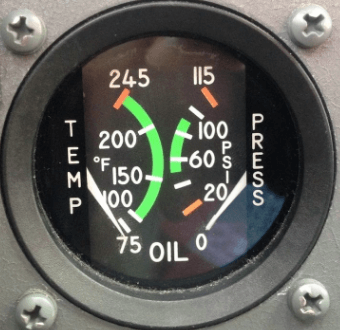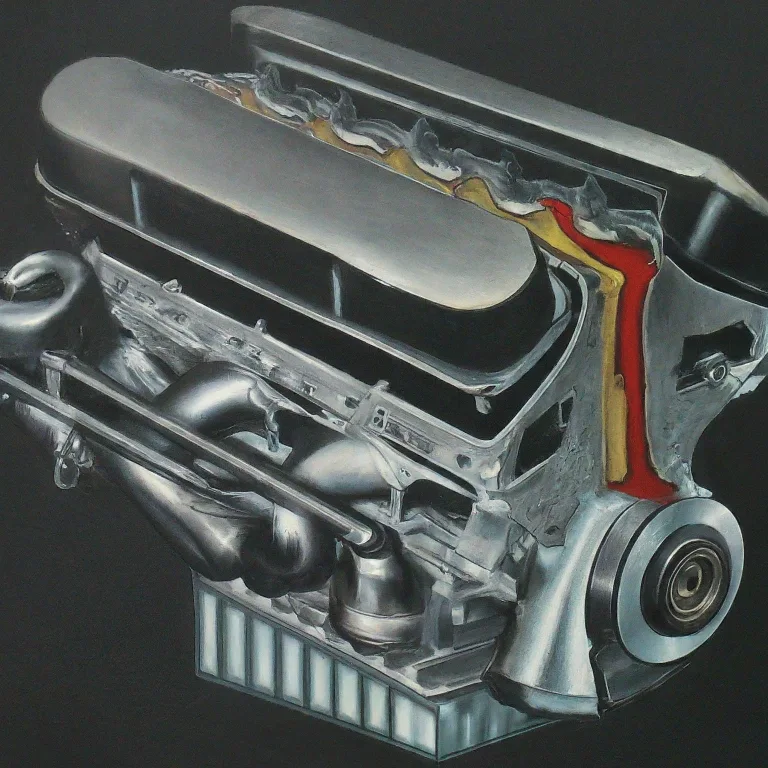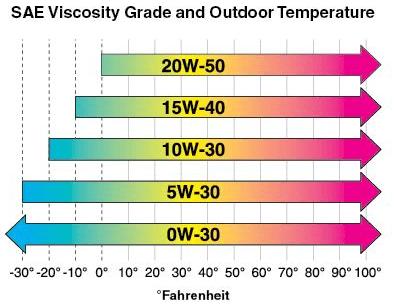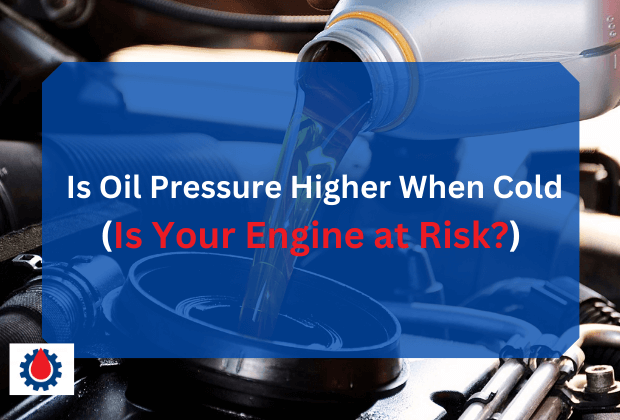Oil pressure refers to the force with which oil is circulated through the engine’s passages. It’s vital for ensuring that all moving parts are adequately lubricated, reducing friction and preventing wear.
The oil pump generates this pressure, and it varies depending on several factors, including the engine’s temperature, oil viscosity, and engine speed.
Let’s explore how temperature impacts oil pressure and what you need to know to keep your engine running smoothly.

Is Oil Pressure Higher When Cold
The key to understanding why oil pressure changes with temperature lies in oil viscosity. Viscosity is essentially the oil’s thickness or resistance to flow. When oil is cold, its viscosity increases, making it thicker. This thicker oil is harder to pump through the engine’s oil passages, leading to higher pressure readings.
As the engine warms up, the oil thins out due to decreased viscosity. This allows the oil pump to move the oil more easily, resulting in lower oil pressure.
Read Normal Engine Oil Temperature(Find Out the Safe Range)
Why Is Oil Pressure Higher When Cold?
You’ve likely noticed your car’s oil pressure gauge reading higher when you first start the engine. This is a common observation that sparks curiosity among many car owners. So, is it normal for oil pressure to be higher when the engine is cold? Let’s break it down.
1. Engine Design and Tolerance
Engines are designed with specific tolerances that can affect oil pressure. When the engine is cold, the metal parts inside the engine are slightly smaller due to thermal contraction. This can cause the oil passages to be narrower, further increasing the resistance and, consequently, the oil pressure.

As the engine heats up, these components expand, the passages widen, and the oil pressure drops to a normal range.
2. The Role of Oil Viscosity

The type of oil used in your engine also plays a significant role in how oil pressure behaves when cold. Oils are rated by their viscosity, typically noted as a combination of numbers and letters, like 5W-30.
The first number (5W) indicates the oil’s viscosity at low temperatures (W stands for winter), while the second number (30) represents its viscosity at high temperatures. Lower viscosity oils, such as 0W-20, flow more easily when cold, resulting in lower oil pressure compared to higher viscosity oils like 10W-40.
Implications of High Oil Pressure When Cold
While high oil pressure when cold is generally normal, it’s essential to understand its implications and know when it might indicate a problem.
1. No Immediate Cause for Concern
For most vehicles, higher oil pressure on a cold start is a typical behavior and nothing to worry about. Once the engine reaches its operating temperature, the pressure should drop to normal levels. Regular monitoring of your oil pressure gauge can help you become familiar with what’s normal for your vehicle.
2. Potential Issues
In some cases, consistently high oil pressure, even after the engine has warmed up, could indicate an underlying issue. For example, a clogged oil filter, malfunctioning oil pressure relief valve, or an oil pump problem could prevent the oil from circulating properly, leading to abnormally high pressure. It’s crucial to address these issues promptly to avoid potential damage to the engine.
3. Oil Pressure Gauge Accuracy
The oil pressure gauge in your vehicle provides an estimate of the pressure, but it’s not always 100% accurate. Different factors, such as the quality of the gauge, electrical connections, and sensor accuracy, can affect the readings.
If you notice unusual oil pressure readings, it’s a good idea to have your vehicle checked by a professional to ensure that the gauge is working correctly.
Read How to Clean Funnel After Oil Change(Don’t Make These Mistakes)
How to Monitor Oil Pressure
Regularly Check Your Gauge
Make it a habit to glance at your oil pressure gauge, especially when starting your vehicle in cold weather. Familiarize yourself with what’s normal for your vehicle in different conditions so you can quickly spot any anomalies.
Listen to Your Engine
Unusual sounds, like knocking or ticking, can sometimes accompany abnormal oil pressure. These noises could indicate that certain engine components aren’t receiving adequate lubrication, potentially leading to damage. If you hear anything out of the ordinary, it’s best to have it checked out.
Watch for Warning Lights
Many modern vehicles are equipped with oil pressure warning lights. If this light comes on, it usually indicates that the oil pressure is too low. While this is the opposite of high oil pressure, it’s still a critical issue that requires immediate attention to prevent engine damage.
Persistent High Pressure
If you notice that the oil pressure remains consistently high, even after the engine has warmed up, it could indicate a problem with the oil pump or pressure relief valve. A professional mechanic can diagnose the issue and make the necessary repairs to prevent damage to your engine.
Unusual Engine Behavior
If your vehicle’s engine starts acting up, such as losing power, making strange noises, or running rough, and you also notice abnormal oil pressure readings, it’s essential to have it checked out immediately. These symptoms could be signs of a serious issue that needs to be addressed to avoid costly repairs.
Routine Maintenance
Regular oil changes and maintenance are crucial for preventing issues related to oil pressure. Stick to your vehicle manufacturer’s recommended service intervals and use the correct oil for your engine. This simple step can go a long way in ensuring your engine runs smoothly and efficiently.
Choosing the Right Oil for Cold Weather
Selecting the right oil for your vehicle is particularly important in cold climates. Here’s how to choose the best oil to keep your engine protected in colder temperatures:
Consider Synthetic Oil
Synthetic oils are designed to perform better in extreme temperatures, both hot and cold. They tend to flow more easily at low temperatures, reducing the likelihood of excessively high oil pressure when the engine is cold. If you live in an area with harsh winters, switching to synthetic oil could be beneficial.
Check Your Owner’s Manual
Your vehicle’s owner’s manual will provide recommendations for the best oil viscosity to use in different temperature ranges. Following these guidelines will help ensure that your engine is protected and that your oil pressure remains within the optimal range.
Be Prepared for Winter
If you live in a region that experiences freezing temperatures, consider using a block heater to warm up your engine before starting it. This can help reduce the initial spike in oil pressure by ensuring the oil is at a more optimal temperature when you start the vehicle.
Read Royal Purple oil vs Mobil 1(Which Oil Outperforms the Other)
FAQs
Is high oil pressure when cold bad for my engine?
Generally, high oil pressure when cold is normal and not harmful to your engine. It’s due to the thicker viscosity of the oil in low temperatures. The pressure should decrease as the engine warms up.
Why does my oil pressure drop after the engine warms up?
As the engine warms up, the oil becomes less viscous, allowing it to flow more easily through the engine’s passages. This results in a decrease in oil pressure, which is a normal part of the engine’s operation.
Can I use thicker oil to increase oil pressure?
Using a thicker oil may increase oil pressure, but it’s important to use the oil viscosity recommended by your vehicle’s manufacturer. Using oil that’s too thick can lead to insufficient lubrication, especially in colder temperatures, and may cause engine damage.
What should I do if my oil pressure remains high after the engine has warmed up?
If the oil pressure remains high after the engine has reached its operating temperature, it could indicate a problem with the oil pressure relief valve, a clogged oil filter, or another issue. It’s best to have your vehicle inspected by a professional to diagnose and fix the problem.
How often should I check my oil pressure?
It’s a good idea to check your oil pressure regularly, especially when starting your vehicle in cold weather. Monitoring it during routine drives can also help you detect any potential issues early.
Can low oil levels cause high oil pressure?
No, low oil level typically causes low oil pressure because there isn’t enough oil to circulate through the engine. High oil pressure is usually caused by thicker oil or a blockage in the oil system.
Final word
Knowing why oil pressure is higher when cold and how to manage it is essential for keeping your engine in top condition. While higher oil pressure on a cold start is normal, being aware of your vehicle’s typical behavior can help you identify potential issues before they become serious.




